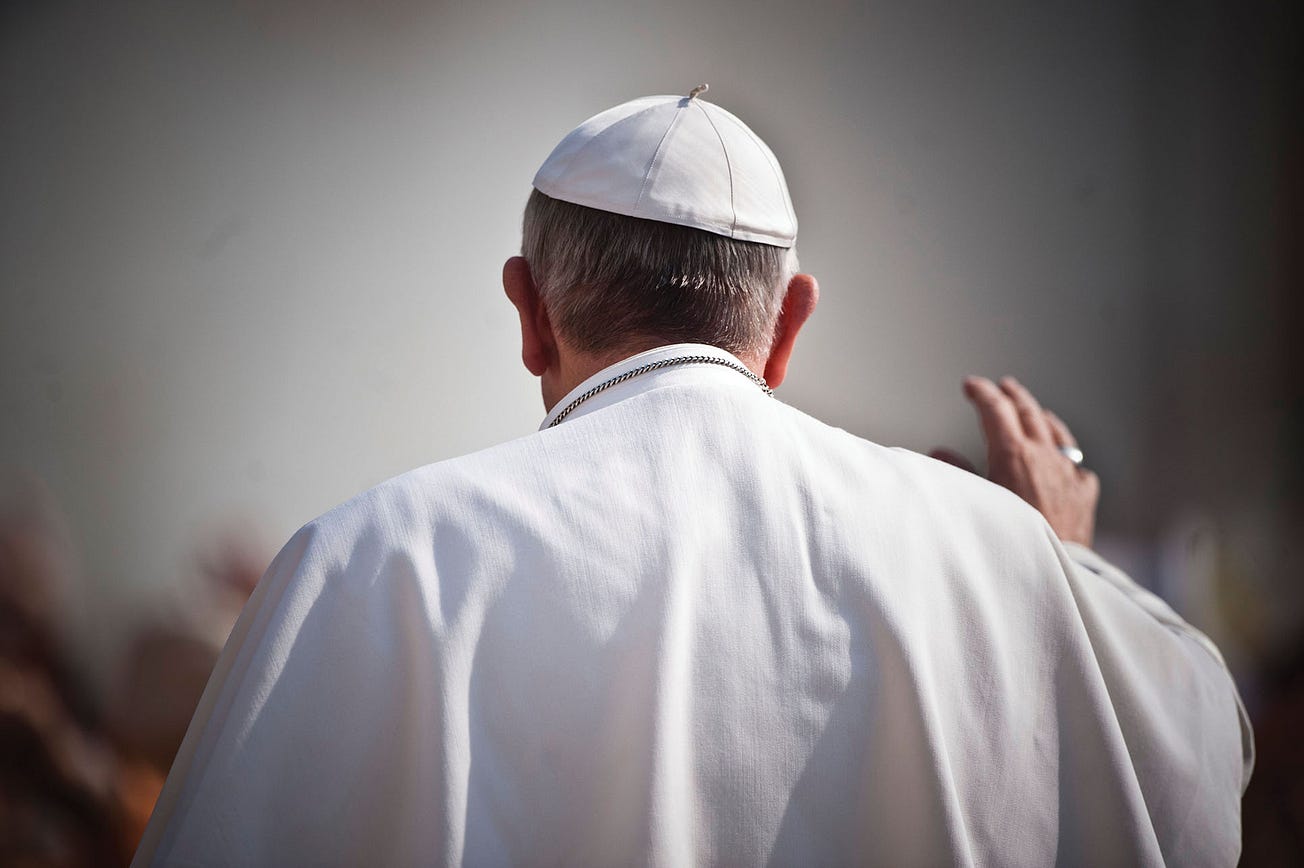Pope Francis issued new laws governing Vatican City courts on Friday, clarifying judicial terms and creating a new mechanism for bringing lawsuits against the city state for damages over the maladministration of justice.
Amending several previous city state laws with a single motu proprio issued April 19, but signed March 27, the pope provided for enhanced stability in office for the judges of the Vatican state’s tribunal, and sought to put the court on a more professional and full-time footing.
The changes to the law are, according to the pope, the product of the “experience gained over the last few years in the field of administration of justice,” most likely a reference to the years-long Vatican financial trial which concluded last year by convicting nine individuals, including Cardinal Angelo Becciu.
The new changes to the law provide for retired Vatican City judges to receive an ordinary Vatican civil service pension, along with all other normal retirement benefits for which they qualify, even if they are eligible for other such pensions in Italy.
Also key among the changes is the establishment by the pope of a clear line of succession for leading the city state’s judiciary.
Under the already operative laws of the Vatican, the chief judge of the ordinary court has a retirement age of 75, while the cardinal judge of the city state’s supreme appeal court retires at 80. Previously, both judges were required to present the pope with their resignations at the end of the judicial year, with the pope free to accept or decline as he deemed appropriate.
Now, while Francis may choose to allow either judge to continue in office past their required retirement age, the pope has also created the offices of a stably appointed adjunct president of both courts who can function as effective shadows to the chief judges, ready to assume the role whenever necessary.
The current president of the ordinary court of Vatican City is Giuseppe Pignatone, who led the tribunal as it conducted the nearly three-year Vatican financial crimes trial.
Pignatone will turn 75 next month, nominally aging out of his position at the end of the judicial year, unless Pope Francis chooses to keep him in post.
But while Friday’s motu proprio formally created and defined the office of adjunct president in Vatican City law, Francis had already nominated judge Venerando Marano to the position in June last year, with the appointment taking effect from Jan. 1 of this year.
Although Vatican law requires that the court be led by the cardinal president of the Church’s highest canonical court, the Supreme Tribunal of the Apostolic Signatura, and that a majority of the court’s judges be made up of cardinals from the signatura, Francis instead appointed the Cardinal Camerlengo, Kevin Farrell, to lead the body.
Francis also named a slew of other cardinals without canonical or other legal experience to serve as the court’s judges, including the president of the Italian bishops’ conference, Cardinal Matteo Zuppi, Cardinal Paolo Lojudice of Siena, Cardinal Mauro Gambetti vicar general for the Vatican City.
—
In a potentially significant legal development, Francis also on Friday created a new mechanism for suing the government of the city state when a person claims to have “suffered unjust damage as a result of a behavior, an act or a measure carried out in the exercise of judicial functions” by Vatican City officer, either through “willful misconduct or gross negligence.”
Individual court officers, judges or prosecutors, are themselves shielded from individual liability in lawsuits, even for acts found to be a “manifest violation of the law,” and instead the city state’s government assumes liability. The purpose of this provision is to ensure judicial officers have the freedom to act independently in office, without the potentially coercive fear of being pursued in court for their acts of office.
However, the city state itself then has a six month window to pursue its own case against the offending official, but the damages it can claim against them are capped at the equivalent of six month’s salary.
Establishing the legal premise that the Vatican government is liable for the criminal acts in office of its officials is significant.
Currently making its way through the courts of the city state is a lawsuit brought by the former auditor general of the Vatican, Libero Milone.
Milone is suing for damages for wrongful termination, after he was forced from office in 2017 by the leadership of the Vatican City Corps of Gendarmes and Cardinal Becciu, at that time sosituto at the Secretariat of State.
Milone’s legal team argued that the papal secretariat should be held liable, since the Secretariat of State bore ultimate responsibility for his appointment, as well as oversight of the individuals (especially Becciu) who compelled his resignation under threat of criminal prosecution.
However, in the Jan. 2 ruling, the court found that the individuals involved in compelling Milone’s departure did so via “alleged threats” and otherwise illegal or ultra vires means, “subjects therefore certainly unrelated to the Secretariat of State which cannot be therefore held responsible for such conduct,” the judges ruled.
Under the changes to the laws issued by Francis on Friday, however, damages of the kind sought by Milone are to be pursued “exclusively against the State to obtain compensation.”
“The action for compensation cannot, therefore, be exercised against the individual magistrate, which in any case is also held by the State,” according to Francis’ revised text.
The new law does not apply to Milone’s case, since it concerns judicial officials and not Vatican City police or curial state officials like the sostituto.
However, establishing the legal premise that individuals cannot be sued in Vatican City for criminal abuse of office, but that the state can, could prove influential in the appeal hearings of the auditor’s case.




